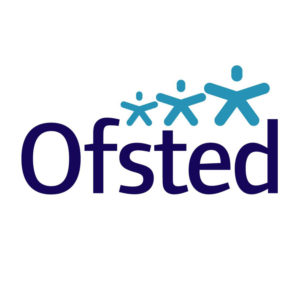Chapter Contents
- Foster Parent Support
- Local Authority Support
- Local Community Services
- National Organisations and Charities
Foster Parent Support
You will be the primary source of support for young people as they prepare to leave care. Please use the resources within the ‘Leaving Care‘ section of this website to discuss leaving care issues with them, and seek further advice and assistance from your local team at ISP.
Please use our Life Skills Development booklets throughout the young person’s time with you to help them develop their knowledge and skills towards young adulthood. Gradual development of skills preferable to intensive work between the ages of 16 and 18, as it is more natural and less likely to cause anxiety. Please discuss their progress with your supervising social worker.
You will provide essential practical and emotional support as the young person prepares to leave your home, whenever that may be. They may be leaving you to go to university, to a semi-independent living arrangement or home to birth family. With the guidance of social workers, you will help them to complete any necessary forms for housing, financial support, work or training, and you will support them as they make visits, e.g. to their new home, town or college.
Many of our foster families remain in close contact with young people whom they have cared for, and our care leavers often continue to consider you as part of their family. You might be the first person that they contact in a crisis, and you may be able to signpost them to support services or provide some practical help yourself. Please let us know if we may be able to help in these circumstances.
Local Authority Support
The young person’s local authority is responsible for their welfare as a care leaver. This can continue until they are 21, or 25 if they request it. Please advise young people to choose to keep this source of support for as long as possible.
If the young person has no adult care needs, they will not have a social worker after the age of 18, but will have a Personal Advisor (PA) to keep in contact with. If they have been assessed as eligible for adult care services, they will have a social worker from the adult care team. Most young people therefore have a PA.
The PA is responsible for supporting the young adult through their transition to independence by visiting regularly, keeping in touch, and helping with the practical arrangements. Once the young person leaves your home, the PA will be their main source of support.
Local Community Services
When the young adult is ready to move on from your care, and settling into a new home, possibly in a new area, it is a good idea to find out what local community services are able to support them.
They will need to know where their local council offices are, including the housing department and Job Centre. In addition, finding out about local support groups, places of worship and affordable leisure facilities may be helpful.
National Organisations and Charities
The young adult’s circumstances at any point of time may necessitate some additional specialist support, advice or guidance. This can include:
Advocacy Services
Whilst they are in foster care, or afterwards as a care leaver, young people may need an advocate to help them to explain to their local authority, or other government services, what they need or would like to happen. Advocates can also be helpful where there is conflict between a young person’s view and that of their local authority. Services with experience of helping young people in care, and care leavers include Coram Voice and NYAS:
Information about Legal Rights
We would recommend that young people make contact with their local Citizens Advice Centre if they have any legal concerns, e.g. in relation to rental tenancy right.
Advocacy services can help young people to access solicitors should this be necessary in relation to legal challenges to their local authority’s decisions.
Homelessness advice and Assistance
Shelter can provide information and advice about housing, housing rights and homelessness.
Centrepoint is the UK’s leading homelessness charity for young people.
There may be additional regional organisations and charities that can assist, as well as the local housing department. Care leavers should make immediate contact with these support services if they are made homeless, or threatened with homelessness (including receiving a notice of eviction).
Financial Assistance and help with debt
Young people should make initial contact with their local authority if they are in financial hardship or unable to repay debt. They may be able to access emergency support funds, but these are often repayable.
If they are having difficulty with debt, they should contact the StepChange debt charity for assistance.
There are charity organisations that provide grants for care leavers and the Turn2Us website is a good place to go to find out what assistance is out there for specific needs. The Spark Foundation may provide small grants for care leavers, particularly in relation to items needed for education, training and employment.



